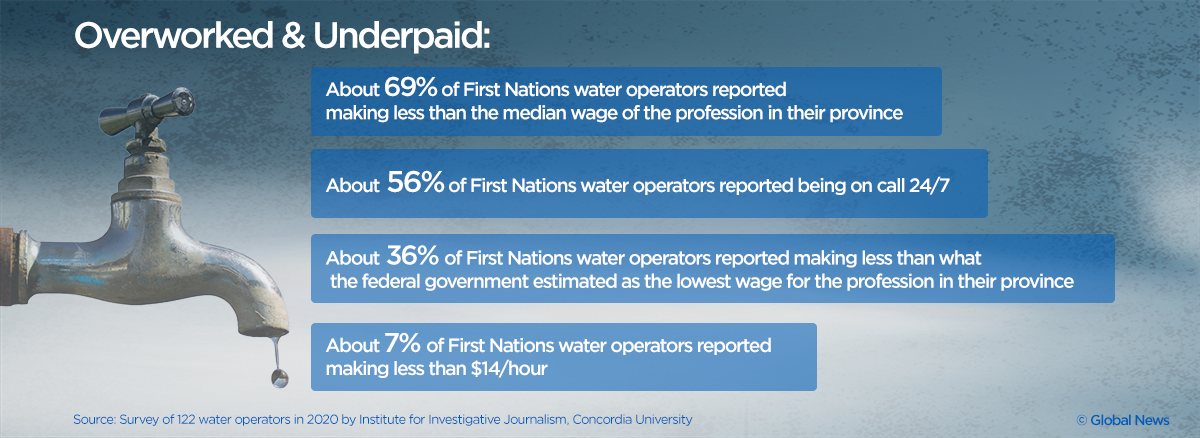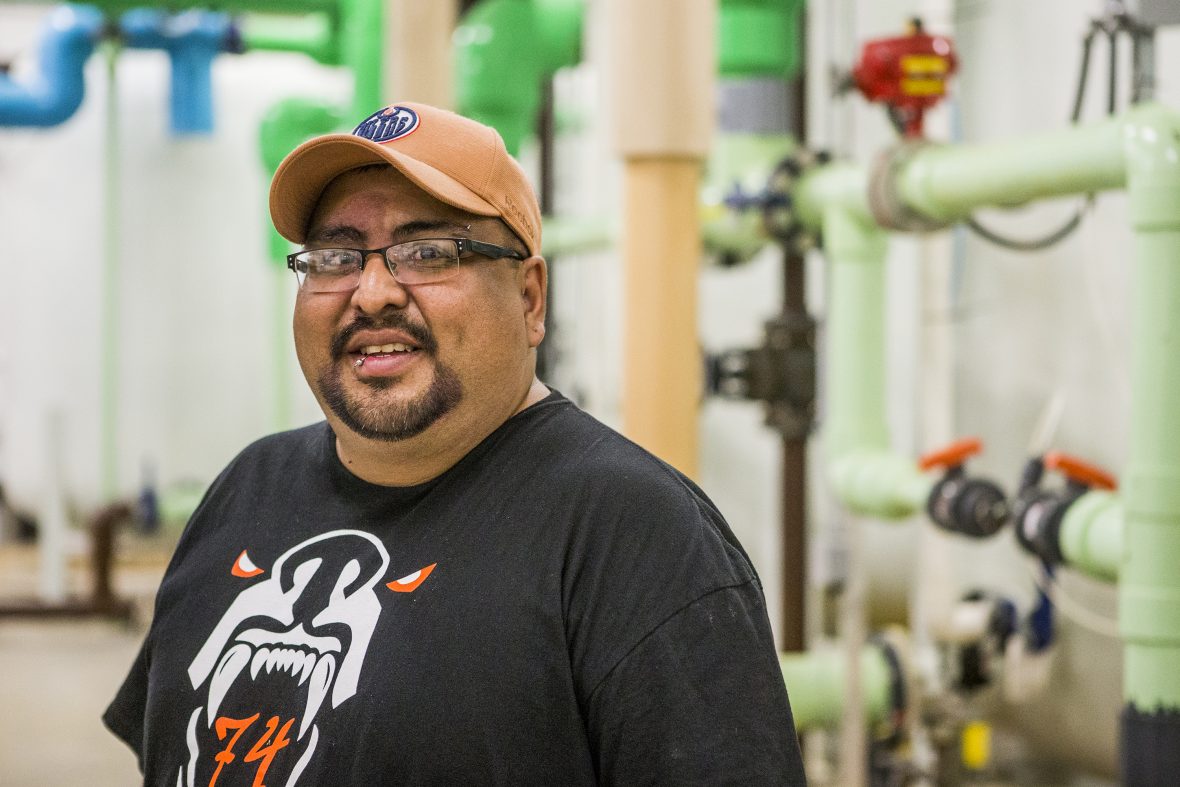Indigenous Services Minister Marc Miller says the Trudeau government is working on a plan to improve the pay and working conditions of water operators on First Nations, but he doesn’t know how long it will take.

Miller made the comments at a news conference on Wednesday in response to questions about a recent investigation by Global News, APTN News, the Institute for Investigative Journalism and other media organizations.
Based on in-depth interviews with 122 operators working in First Nations water treatment plants across Canada, the investigation found that more than two-thirds of the operators said they made less than the median wage of the profession in their province. More than half also said that they were on call 24 hours a day and seven days a week.
“It isn’t fair,” Miller said at the news conference in Ottawa.
At least a third of the water operators said in interviews that they were being paid a wage that was lower than the lowest wage for their profession in their respective province or territory, as estimated by the federal government. And about seven per cent of the water operators told the investigation they were making less than $14 an hour.
The investigation also found that the government has known for years that its policies and funding formulas are outdated and cumbersome, making it difficult for many First Nations to pay for ongoing maintenance and operations of their infrastructure, including water systems.
One of the water operators, Nathan Martell from the Moosomin First Nation, said he worked two jobs, including as a water operator in North Battleford, Sask., 40 kilometres to the south. He explained that he gets full benefits and is paid more for the work he does in North Battleford, but that he has chosen to continue working in his own nation at the same time.
“The big thing for me is, it’s our community,” Martell said. “We grew up here and my family’s from here and if they’re not getting good quality water, then that drives me … I don’t want nobody to get sick or anything to go wrong. And it’s my home. You can’t turn your back on home.”
About a hundred journalists worked on the investigation, including students from 10 different universities across the country, who conducted in-depth interviews with water operators in early 2020.

Get daily National news
Miller said the reporting by Global News and its partners was “excellent” and reflects what he has heard in conversations with First Nations leaders.

He added that the Trudeau government has already announced plans to improve its policies in its recent fall economic statement, but Miller was unable to say when this would result in better working conditions for First Nations water operators.
“I don’t have that for you yet,” Miller said. “I’d like to see it as soon as possible. But it represents some policy shifts within the government — within the department that, in fairness, I have to go back and work on with the team. So we’ve acknowledged we know it exists. We know it’s unfair. We’re going to change it.”
This reporting was done in partnership with a consortium led by Concordia University’s Institute for Investigative Journalism that includes Global News, APTN News, the University of King’s College, L’Université du Québec à Montréal, the University of Regina School of Journalism and First Nations University of Canada Indigenous Communication Arts (INCA).
Investigative team:
Institute for Investigative Journalism reporting fellowship:
Jaida Beaudin-Herney, First Nations University of Canada
First Nations University of Canada
Taryn Acoose, Jaida Beaudin-Herney (IIJ Summer Fellow), Brittany Boschman, Charmaine Ermine, Danna Henderson, Krystal Lewis, Alicia Morrow, Darla Ponace, Mercedes Redman, Shayla Sayer-Brabant, Doris Wesaquate. Instructor: Patricia W. Elliott
University of Regina
Suliman Adam, Kerry Benjoe, Adam Bent, Ethan Butterfield, Jacob Carr, Dylan Earis, Morgan Esperance, Mick Favel, Libby Giesbrecht, Sayda Momtaha Habib, Theresa Kliem, Michelle Lerat, Donovan Maess, Kaitlynn Nordal, Kehinde Olalafe, Heather O’Watch, Julia Peterson, Tuuli Rantasalo, Paige Reimer, Kaitlyn Schropp, Dan Sherven, Penny Smoke, Dawson Thompson, Jasper Watrich. Instructors: Patricia W. Elliott, Trevor Grant, Layton Burton
- Trump doubles down after U.S. Supreme Court strikes down global tariffs
- Porter flight from Edmonton loses traction, slides off taxiway at Hamilton airport
- Coffee-hockey combo — or breakfast beers? — for bleary-eyed Olympic fans
- Are Canadian jobs any safer than before Trump’s tariffs were struck down?
— with files from Kaaria Quash (Concordia University), Geneviève Larochelle-Guy (L’Université du Québec à Montréal), Krystal Lewis (First Nations University of Canada), Michael Wrobel, Patti Sonntag (Institute for Investigative Journalism), Ryan Kessler (Global News), Andrea Hill (Saskatoon StarPhoenix), Priscilla Wolf (APTN News)
University of King’s College:
Nebal Snan, Emma Wilkie (Instructor: Pauline Dakin)
See the full list of “Broken Promises” series credits and more information about the consortium on the Clean Water, Broken Promises website.
Produced by the Institute for Investigative Journalism, Concordia University.
For tips on this story, please contact the reporters at iij.tips(at)protonmail.com










Comments
Want to discuss? Please read our Commenting Policy first.